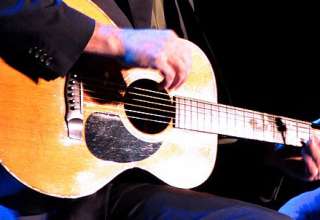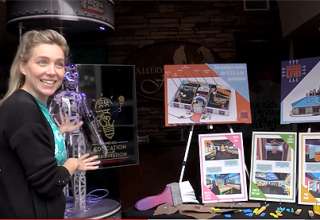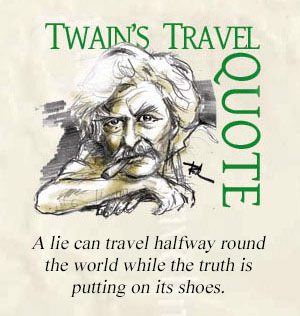Joseph Stiglitz: US Coronavirus Response Is Like ‘Third World’ Country
By Larry Elliott, Guardian UK
Joseph Stiglitz attacks Donald Trump, saying US on course for second Great Depression
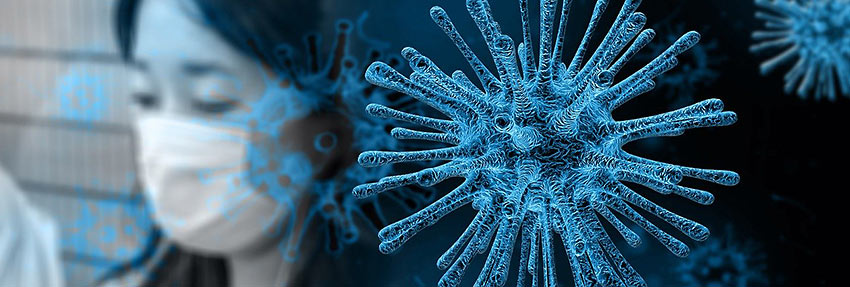
Donald Trump’s botched handling of the Covid-19 crisis has left the US looking like a “third world” country and on course for a second Great Depression, one of the world’s leading economists has warned.
In a withering attack on the president, Joseph Stiglitz said millions of people were turning to food banks, turning up for work due to a lack of sick pay and dying because of health inequalities.
The Nobel prize-winning economist said: “The numbers turning to food banks are just enormous and beyond the capacity of them to supply. It is like a third world country. The public social safety net is not working.”
Stiglitz, a long-term critic of Trump, said 14% of the population was dependent on food stamps and predicted the social infrastructure could not cope with an unemployment rate that could hit 30% in the coming months.
“We have a safety net that is inadequate. The inequality in the US is so large. This disease has targeted those with the poorest health. In the advanced world, the US is one of the countries with the poorest health overall and the greatest health inequality.”
Stiglitz said Republicans had opposed proposals to give those affected by coronavirus 10 days’ sick leave, meaning many employees were going to work even while infected. “The Republicans said no because they said it would set a bad precedent. It is literally unbelievable.”
He added: “The safety net is not adequate and is propagating the disease. There is very weak unemployment insurance and people don’t think they can rely on it.”
During an interview with the Guardian to mark the paperback publication of his book People, Power, and Profits, Stiglitz was asked whether the US might be heading for a second Great Depression.
“Yes is the answer in short,” he said. “If you leave it to Donald Trump and Mitch McConnell [the Republican Senate majority leader] we will have a Great Depression. If we had the right policy structure in place we could avoid it easily.”
Stiglitz said that as a result of Trump’s mismanagement, the White House office responsible for pandemics had been closed, funding for the Centers for Disease Control and Prevention had been cut, and the US had gone into the crisis without enough testing kits, masks and protective gear. Encouraged by Trump, some parts of the US were determined to reopen in a way that would facilitate the transmission of the disease and lead to a fresh outbreak, he added.
“In those circumstances it won’t be the government enforcing the lockdown, it will be fear. The concern is that people are not going to be spending on anything other than food and that’s the definition of a Great Depression.
“We were unprepared but, even given the degree of unpreparedness, Trump’s decision to make this about politics rather than about science has meant we have responded far more poorly.”
Stiglitz said that if Trump were defeated in the presidential contest in November and the Democrats took control of both houses of Congress there was a chance of the US moving in a more progressive direction, but he warned Republicans would fight dirty in order to cling on to power.
“There is voter suppression and gerrymandering. The Republican party knows it’s a minority party and there is a no-holds-barred struggle going on to make sure a minority party rules America.”
Stiglitz said the current crisis would force countries to make themselves less vulnerable, and this would lead to shorter supply chains and a greater emphasis on self-sufficiency in food and energy.
He added that the complexity of modern production methods meant autarky was not feasible but added: “Fighting global pandemics and climate change require global cooperation. It’s just that the president of the United States doesn’t understand that.
“I hope we emerge from this with the perspective that multilateralism is even more important than we thought. It can’t just be a corporate-driven globalisation. We have to make it more resilient.’
5 Ways to Support Small Businesses from Home During the Pandemic
Courtesy Caroline Morse Teel, Principal Editor for SmarterTravel. Follow her on Instagram @travelwithcaroline for travel photos and advice.
Small businesses are really hurting during this time of isolation. Here are five simple and safe ways you can help support them so that they’ll still be there for you when the pandemic is over. (And remember — the best way you can help small business is by staying home, so that we can end this isolation period faster.)
Shop Online
Does that cute local shop you like to visit have a website? Many stores are still fulfilling orders online, so you can safely shop at home and have items delivered. Restaurants may be offering more merchandise (think everything from T-shirts to cookbooks). Taking the money you’d normally spend in-person and redirecting it to online sales can be a huge help to a small business. If you’d usually order a book from Amazon, think about ordering it from a small local bookstore instead — sites like IndieBound.org can help you find a store near you that accepts online orders.
Order Takeout/Delivery
Many restaurants that previously only offered dine-in are now pivoting to offer takeout and delivery. If possible, call/order online directly from the restaurant (rather than via a third-party delivery app) in order to spare the restaurant the fees those services usually charge. Don’t forget to tip generously (for pick-up or delivery) to support the workers who are putting themselves at risk in order to serve you food during this time.
Buy Gift Cards
As one restaurant owner told The Washington Post, “gift cards are like interest-free loans.” By buying gift cards now, you’re giving a restaurant or store an influx of cash without them needing to offer anything in return in this very moment. And then when the establishment reopens, you’ll be able to redeem the gift card and help the restaurant by bringing in more business.
Write Positive Reviews
How many times have you picked a restaurant based solely on the number of positive reviews it has? Or dismissed one due to dismal reviews? Writing positive reviews on platforms scan help give your favorite local hotel, restaurant, bar, or shop an edge when they do reopen — or push them towards the top when people are searching for a delivery or takeout option. Following and commenting on social platforms like Instagram or Twitter can help as well.
Donate
Some restaurants and stores have started GoFundMe campaigns to help support their furloughed employees or to help keep the lights on. Consider donating whatever amount you can — even if you don’t want to donate to a specific store, there are plenty of funds to help hourly workers, frontline responders, and more.
C.D.C. and State Department Say to Avoid Cruises: What Travelers Need to Know
Courtesy Tariro Mzezewa and Julie Weed
Despite the government warnings, cruise lines are continuing with sailings. How can passengers navigate the confusion?
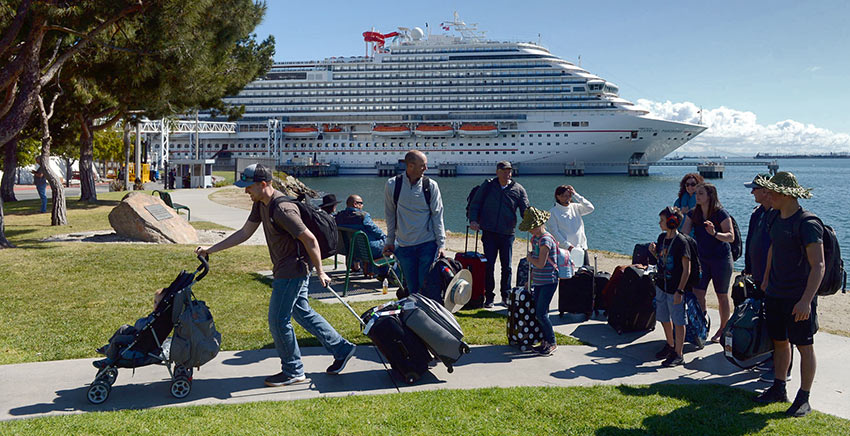
The Centers for Disease Control and Prevention and the State Department are urging Americans to avoid cruise ships as the coronavirus continues to spread, but most sailings are continuing as scheduled, leaving travelers unsure of whether to follow the government’s guidance or continue with their plans.
“Recent reports of Covid-19 on cruise ships highlight the risk of infection to cruise ship passengers and crew,” the C.D.C. said in its latest travel advisory. “Like many other viruses, Covid-19 appears to spread more easily between people in close quarters aboard ships.”
The State Department, in its advisory issued on Sunday, said that American citizens, particularly those with underlying health conditions, “should not travel by cruise ship.”
The warnings came after the leaders of the top American cruise companies met with Vice President Mike Pence on Saturday and agreed to work with the Department of Homeland Security, the Coast Guard and the C.D.C. to come up with new policies to help contain the coronavirus in the coming days.
At the meeting, Mr. Pence said cruise lines would enhance their entry and exit screenings, establish shipboard testing for the coronavirus, coordinate new quarantine standards for all ships with the C.D.C. and create a protocol for moving anyone who got the coronavirus or another serious illness to facilities on land.
With boats continuing to sail, what can travelers expect?
What are the cruise lines saying?
Carnival Corporation, the world’s biggest cruise company, said in a statement on Sunday that its brands, which include Carnival Cruise Line, Holland America Line, Princess Cruises and Cunard, enhanced their health screening protocols to include thermal scans and temperature checks before boarding and onboard, and were in conversation with the C. D.C. World Health Organization and other health officials, but were not taking further steps.
“While an advisory has been issued, no restrictions are in place for those who choose to take a cruise,” said Roger Frizell, a spokesman for Carnival. The company has had two of its ships, the Diamond Princess and the Grand Princess, quarantined with cases of coronavirus onboard.
Melissa Charbonneau, director of corporate reputation for Royal Caribbean Cruises, another big player in the cruise market, said that it was “staying focused on development of an aggressive, responsive plan as agreed to during the meeting with Vice President Pence.”
Can I get a refund if I cancel based on the government warnings?
Diane Fudge, a travel adviser at All Inclusive Travel Concierge in Homosassa, Fla., said she had six cancellations in three hours on Monday morning, based on the new government guidelines. “Most are seniors and concerned about their health,” Ms. Fudge said in an email, though a young couple also canceled — and sent her a copy of the State Department warning. All of her clients rebooked for later dates.
Traditionally, the cruise companies have set very strict refund policies, but they have loosened up in recent days, as cruise ships have been kept from entering certain ports or, like the Princess ships, been quarantined.
Many cruise lines, including Viking River Cruises, Norwegian, MSC Cruises, Silversea Cruises, Royal Caribbean and Seabourn are letting people delay their sailings, cancel within days of a trip or substitute another passenger for the one originally booked (usually a no-no). Policies vary by company and even by scheduled sailing, so travelers should contact their travel agent or cruise company.
Princess is allowing people with bookings before the end of May to cancel trips in exchange for full credit on a future trip. On Monday, the company said it will offer refunds to people who have been on the Grand Princess, including their costs for air travel, hotels, ground transportation, prepaid shore excursions, gratuities and other items. Princess said it will give guests a future cruise credit equal to the fare they paid for the trip and that “guests will not be charged for any onboard incidental charges during the additional time onboard.”
Holland America Line, another Carnival line, is allowing people who booked a cruise embarking between April 1 and Oct. 15 and who booked in March or April to cancel and receive a future cruise credit. Cunard is telling people to call the company or their travel adviser.
Would-be travelers have been asking about refunds on social media. Carnival, in response, has been telling them that trips are not canceled and that, “While advisories are in place, we are open for business and look forward to welcoming guests who choose to take a cruise vacation with us.”
What about changes onboard?
In recent weeks, many cruise companies have increased their health screenings and onboard cleaning procedures. Embarking passengers may face temperature scans and questionnaires about their travel and proximity to others who may have been exposed to the coronavirus. Cruise lines have also adjusted itineraries and kept crew members and passengers who have been in the hardest-hit countries from boarding ships.
Royal Caribbean said last week that if a passenger has a temperature of 100.4 degrees or more at embarkation, they have to undergo a secondary screening, which involves testing blood oxygen levels. A medical professional will then check the person for other flulike symptoms. The cruise line is encouraging people with chronic lung illnesses, like asthma, to bring a letter from a doctor stating their normal oxygen levels. Anyone not cleared will be denied boarding and receive a refund.
The new guidelines to be worked out after the industry meeting with the Vice President are expected to be announced before the end of the week.
What if I get stuck on a ship overseas?
In its advisory, the State Department noted that, “While the U.S. government has evacuated some cruise ship passengers in recent weeks, repatriation flights should not be relied upon as an option for U.S. citizens under the potential risk of quarantine by local authorities.”
Ms. Fudge, the Florida travel adviser, said one of the couples who delayed their cruise cited this policy as their reason for not wanting to sail during the outbreak.
8 Things to Disinfect Every Time You Fly
Courtesy Sherri Gardner
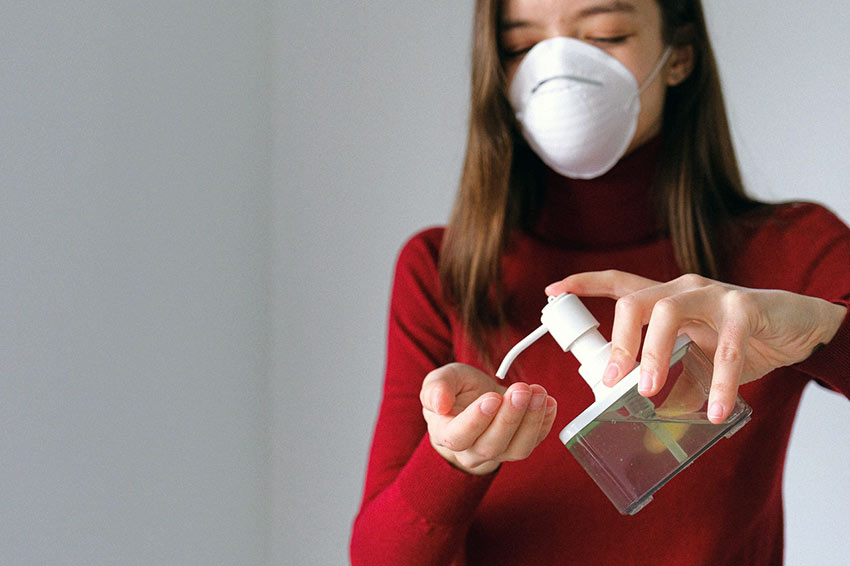
It’s an open secret that airplanes, and airports, are some of the germiest places you visit. From the bins you put your carry-ons in to the seatback pocket, flying exposes you to more germs and pathogens than you might expect.
Website TravelMath conducted a study in 2011 that found most high touch surfaces in airports and on airplanes are dirtier than your home. While Canadian Broadcasting Company show “Marketplace” did a 2018 examination of the dirtiest surfaces on an airplane after taking samples from 18 planes from three major Canadian airlines.
The results from each study vary but they picked up enough bacteria (including E. coli) to convince you to wipe down these germy surfaces:
Headrest
The “Marketplace” study found the headrest to be the germiest surface on the airplanes tested. Along with aerobic bacteria, testers found evidence of E. coli on headrests. Skin cells and bacteria from your head, coat, or hat are transferred to the headrest and for aisle seats, people will often place their hands on the headrest to balance themselves. While it’s hard to avoid using them, give the headrest a good wipe down before putting your head on it. You should also avoid placing your face and hands on it.
Seatback Pockets
Think about the kinds of things you put into a seatback pocket. Banana peels, old water bottles, used tissues — basically any trash you don’t want to hold in your hand ends up in a seatback pocket. Flight attendants have also reported seeing used tampons and dirty diapers in seatback pockets! That considered, it’s no surprise that the pocket is one of the germiest surfaces on the airplane. “Marketplace” found evidence of E. coli, mold, and aerobic bacteria. Because the pockets are so deep, it can be difficult to clean yourself.
As such, it’s best to avoid using them if possible, if you do, use hand sanitizer after retrieving what you need or be sure to keep your hands away from your mouth and face.
Tray Table
Amazingly, the tray tables on planes carry nearly 10 times as much bacteria as the lavatory flush button, according to the TravelMath study. The “Marketplace” study also found evidence of mold and other bacteria. Luckily, tray tables are very easy to wipe down. Make sure to clean any part of the tray table you may be touching along with the seatback screen (if there is one).
Water Fountain Button
This was the next germiest of surfaces tested in the TravelMath study, with about half as much bacteria as tray tables. If you or your kids are going to use the water fountain in the airport, consider covering the button with a facial tissue or using hand sanitizer immediately afterward.
Overhead Air Vent
After wiping down your tray table, give the overhead air vent some attention. Passengers are constantly reaching up to adjust the airflow and temperature and like any vent, they can get incredibly dusty.
Lavatory Flush Button
While it may surprise you that this wasn’t the germiest place of all, it still deserves attention. If the button must be press, wipe it down beforehand, or wash your hand well after using the bathroom.
Seatbelt Buckle
Everyone touches the seatbelt buckle several times during a flight, so it makes sense that it picks up bacteria.
Bathroom Stall Lock
The same goes for the lavatory lock. Every time you touch one, you need to wash your hands or use the sanitizer. Especially since almost 20 percent of passengers don’t wash their hands after using the bathroom.
What to Do About These Germy Surfaces
When traveling through the airport, do your best to avoid touching your face and mouth without washing your hands or using hand sanitizer first. It can seem like a hassle but you should also make sure to wash your hands again before eating at an airport restaurant.
Once you find your seat, use a disinfecting wipe (anything that can kill bacteria and viruses will work) to clean down any smooth surfaces starting with the tray table. After wiping down the tray table you can turn your attention to buckles and armrests. For planes with plastic seatback pockets, and leather or pleather seats, you can also give those surfaces a wipedown. Don’t forget to use hand sanitizer after you’re done.
In the wake of COVID-19, many U.S. airlines are taking more aggressive cleaning measures to combat the spread of contagions. It’s likely that bacteria counts on the above surfaces are much lower now, but it doesn’t hurt to keep a packet of wipes and some hand sanitizer on you.
Concerned about germs when you travel? Here are 7 things to disinfect in your hotel room and 9 common-sense ways to avoid getting sick on a cruise.




